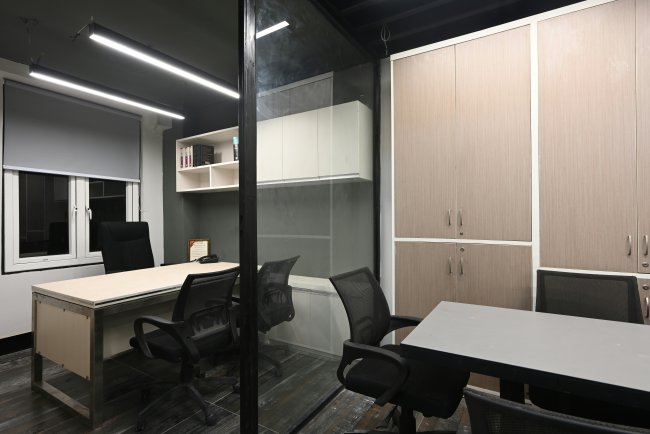This site uses cookies. By continuing to browse the site you are agreeing to our use of cookies Find out more here
Category: Renovation Tips
Small Space Organization Tips That Actually Work
Discover effective small space organization tips that truly work. Learn step by step strategies for decluttering, maximizing stora...
How to Make Your Own Scented Soaps A Complete DIY ...
Discover how to make scented soaps at home with easy step by step guidance. Learn about ingredients, techniques, safety tips, and ...
Crafting with Recycled Materials Fun Ideas for Kid...
Discover creative and fun DIY craft ideas for kids using recycled materials. Learn how to make puppets, bird feeders, jewelry, toy...
Renovation Tips
Home renovations are one of the most effective ways to breathe new life into your living space, increase functionality, and boost property value. Whether you’re tackling a full remodel or making small improvements, renovations give you the opportunity to personalize your home to better fit your lifestyle. Planning is key, as rushing into renovations without a clear vision can lead to wasted time, money, and effort. Start by assessing your home’s current condition and creating a realistic budget based on your goals. Renovation projects should be approached strategically, focusing first on essential repairs before moving on to aesthetics. By prioritizing functionality and quality, you can ensure your renovations make a lasting impact rather than being quick fixes that won’t stand the test of time.
Budgeting is a critical step in any renovation project, as costs can quickly spiral out of control without proper planning. It’s important to get multiple quotes for materials and labor, compare prices, and set aside a contingency fund for unexpected expenses, which are common during renovations. Small upgrades, such as repainting walls, updating fixtures, or installing new cabinet hardware, can dramatically improve your home’s appearance at a fraction of the cost of large-scale projects. By combining cost-saving measures like repurposing existing furniture with high-quality finishes in key areas, you can achieve a luxurious result without overspending. A well-managed budget allows you to invest in renovations that truly add value while avoiding unnecessary expenses.
Renovations often start with structural or foundational improvements, especially if you’re dealing with an older home. Addressing issues like roofing, plumbing, and electrical systems should come before cosmetic upgrades. Investing in these essential repairs ensures your home is safe and sound, and it can save you significant money in the long run by preventing costly damage. Once the basics are taken care of, you can focus on design and comfort. Structural upgrades might not always be visible, but they form the backbone of a successful renovation project. By building on a solid foundation, you ensure your home improvements are durable and reliable for years to come.
Kitchen and bathroom renovations are often the most impactful upgrades in any home. These rooms are central to daily living and can significantly increase property value if designed thoughtfully. A kitchen remodel might include new countertops, upgraded appliances, or improved storage solutions, while a bathroom renovation could focus on modern fixtures, better lighting, and efficient layouts. Even minor changes, like updating faucets or retiling, can dramatically transform these spaces. Since kitchens and bathrooms see heavy use, investing in quality materials and functional design is essential. A well-renovated kitchen or bathroom not only enhances comfort but also makes your home more appealing to future buyers.
Maximizing space is another essential consideration during renovations. Homeowners often overlook vertical space, underutilized corners, or awkward layouts that can be optimized with creative design. Built-in shelving, open-concept layouts, and multifunctional furniture are great ways to make a home feel larger and more functional. Even small renovations, like removing a non-load-bearing wall or adding mirrors, can open up a space and create a brighter, more inviting atmosphere. By carefully planning your layout, you can turn unused areas into valuable living space, whether it’s a cozy reading nook, a home office, or additional storage.
Sustainability is becoming an increasingly important part of renovation planning. Eco-friendly materials, energy-efficient appliances, and water-saving fixtures not only reduce your environmental impact but can also lower your monthly bills. Choosing sustainable options like bamboo flooring, recycled countertops, and LED lighting gives your home a modern edge while supporting a greener future. Adding insulation, solar panels, or double-glazed windows can also make your home more energy-efficient, saving you money over time. Sustainable renovations are a long-term investment that benefits both your family and the environment, making them an excellent choice for forward-thinking homeowners.
Finally, hiring professionals for certain tasks can save time, prevent mistakes, and ensure a polished result. While DIY renovations are rewarding, some jobs—such as electrical work, plumbing, or structural changes—require expert knowledge and licensing. A combination of professional help and personal involvement is often the best way to balance costs and quality. Clear communication with contractors, detailed timelines, and proper permits will keep your renovation on track. When done thoughtfully, renovations are more than just a home improvement project; they’re a chance to create a personalized, functional, and beautiful space that will serve your family for years.









